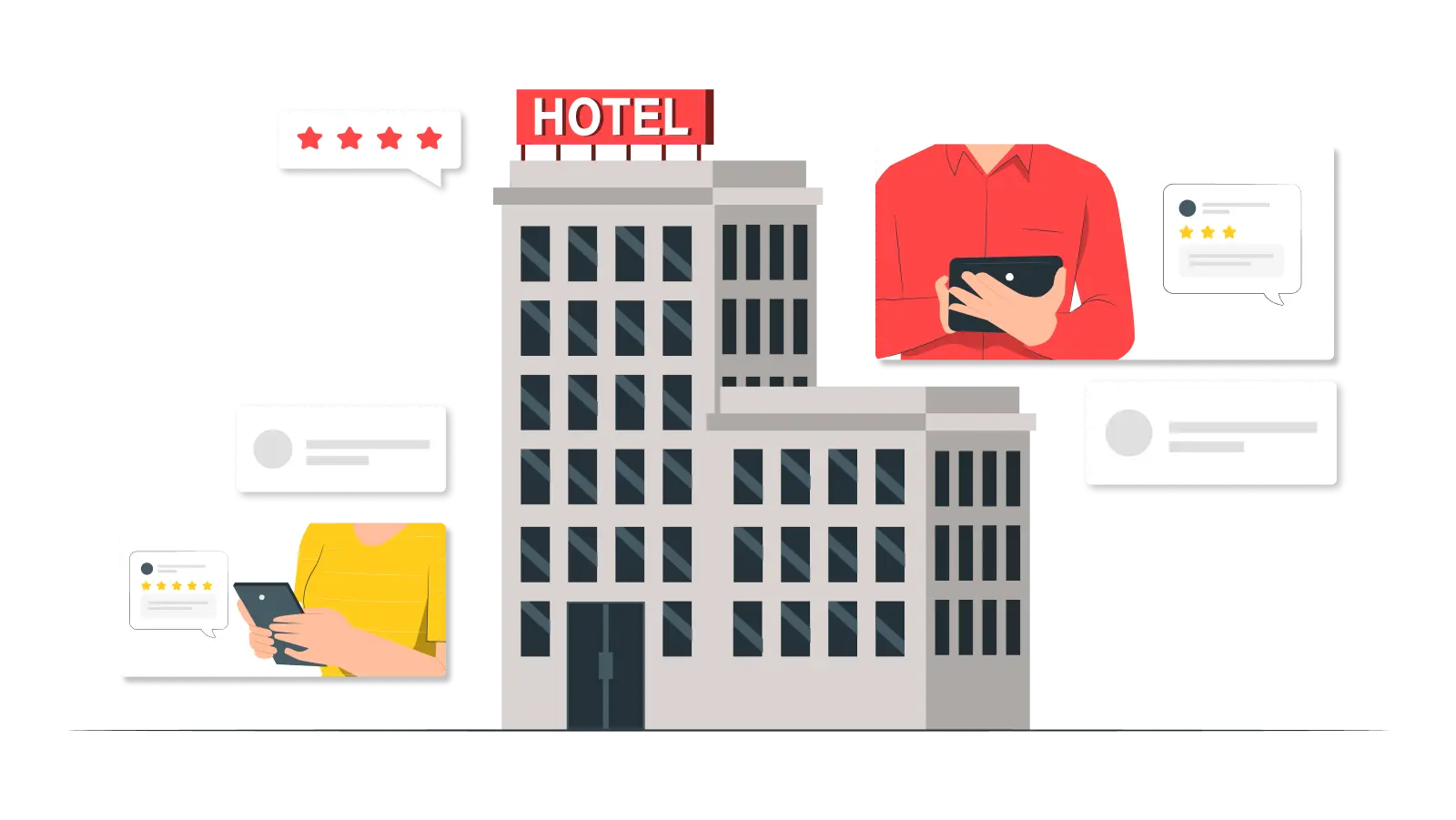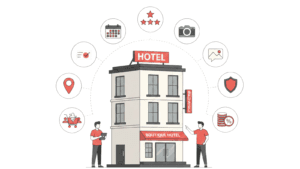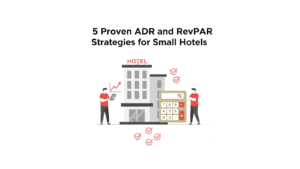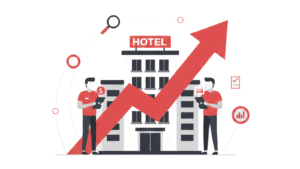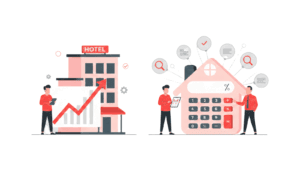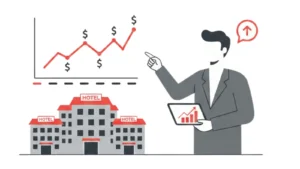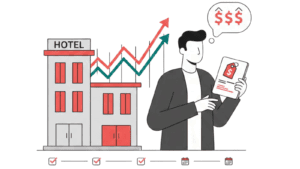Updated : Nov 3, 2025
In today’s digital age, hotel ratings are much more than just numbers—they directly influence your revenue, booking conversions, and overall brand perception. As rating trends for hotels shift rapidly across online platforms, even slight fluctuations can have a significant impact on your property’s performance and RevPAR( Revenue per Available Room). The good news? By leveraging AI in hospitality and harnessing guest experience analytics, hotel owners and managers now have the unique opportunity to turn ratings into powerful, actionable insights—transforming what was once a passive reputation marker into a strategic tool for competitive advantage and smarter revenue management.
The Evolution of Hotel Rating Systems: A Digital Transformation
Historical Shift
Hotel rating trends have transformed dramatically over the years. We’ve moved from classic star ratings decided by inspectors to dynamic reviews shaped by real guest experiences. Today, guests share feedback instantly online, making hotel rating trends more fluid and public than ever.
Platform Influence
Online Travel Agencies (OTAs), Google, and social media now play a big role in hospitality industry insights. These platforms don’t just display your ratings—they amplify them. A single guest review can influence countless potential guests, directly impacting your competitive advantage and revenue management.
AI Integration
Here’s where AI in hospitality makes a difference. Modern tools use guest experience analytics to sift through massive amounts of feedback, social sentiment, and review trends. This personalized guest feedback gives hotel owners and managers actionable insights. With AI in hospitality, it’s easier than ever to understand what drives positive ratings and to adapt quickly, ensuring your hotel stands out in today’s fast-paced market.
Key Trends Shaping Hotel Ratings in the AI Era
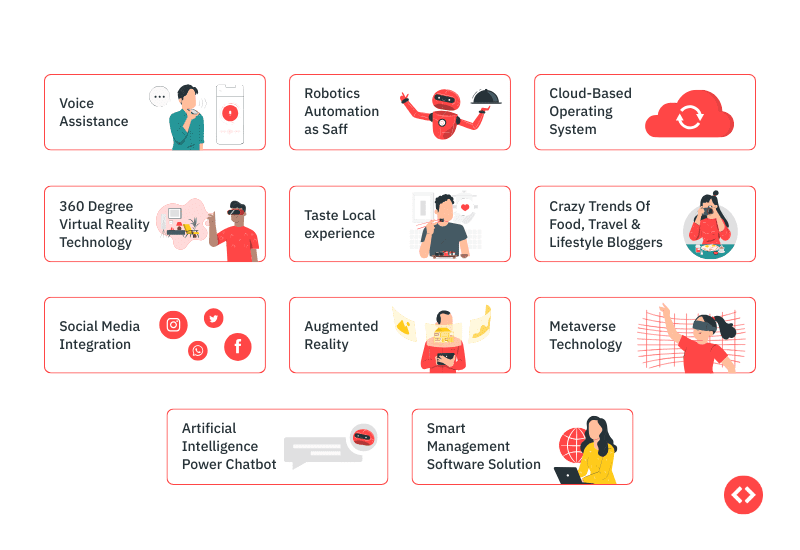
Experience-Driven Feedback
Today, hotel rating trends are increasingly shaped by personalized, holistic guest experiences. Guests are no longer just looking at room quality—they care about how the whole stay made them feel. Hotels that focus on tailored services, seamless check-ins, and thoughtful touches see higher ratings. Leveraging AI in hospitality allows you to analyze guest experience analytics and find out what truly delights your guests.
AI Sentiment Analysis
AI in hospitality is transforming how we interpret and act on guest feedback. Using advanced sentiment analysis, AI can sift through thousands of reviews to extract deeper insights and spot patterns that manual checks might miss. For hotel managers, this means you can quickly identify both emerging problems and hidden strengths, helping you gain a real competitive advantage.
AI Sentiment Analysis tools you can explore
Sustainability & Ethics
Guests are more aware than ever about sustainability and ethical practices. Hotels that prioritize green initiatives, fair labor, and community involvement see these values reflected in their ratings. By analyzing guest experience analytics, owners can monitor how their commitment to these principles is perceived—driving both improved ratings and revenue management opportunities.
Transform your hospitality approach today
Discover actionable strategies tailored for small hotel owners and managers creating unforgettable stays for your guests & expanding revenues for your hotel!
Start your 30-day FREE trial now!Demographic & Regional Nuances
Not all guests rate their stay the same way. Data-driven hospitality industry insights reveal that expectations differ across age groups, cultures, and regions. Personalized guest feedback powered by AI helps you understand these nuances so you can adapt your offerings—whether it’s a tech-savvy amenity for younger travelers or culturally specific services for international guests.
The Tangible Impact of Ratings on Revenue and Bookings: A Data Perspective
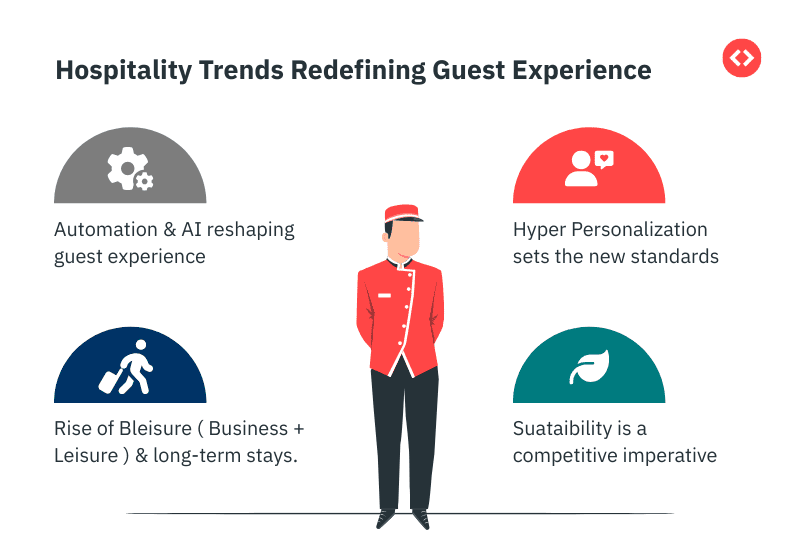
Conversion Correlation
Data consistently shows a direct link between higher hotel ratings and increased booking conversion rates. When guests see positive rating trends for hotels, they’re more likely to choose your property over competitors. AI in hospitality now helps analyze guest experience data, revealing that even a 0.5-point improvement in average ratings can significantly boost conversion rates.
Financial Implications
Poor or inconsistent ratings can have an immediate impact on your hotel’s key performance indicators, such as RevPAR (Revenue Per Available Room) and ADR (Average Daily Rate). Hospitality industry insights indicate that hotels with higher ratings enjoy higher occupancy and can charge premium rates, while those with lower ratings often have to discount rooms, which directly impacts revenue management.
Example
Consider a mid-sized hotel that implemented personalized guest feedback using AI-driven guest experience analytics. Over six months, their average rating improved from 3.8 to 4.3 stars. As a result, their RevPAR increased by 12%, and their direct booking conversion rate jumped by 15%. This simple shift not only enhanced their competitive advantage but also delivered tangible financial growth—an outcome any hotel owner or manager would want to replicate.
AI-Powered Strategies to Elevate and Sustain High Ratings
Real-time Feedback Tools
Leveraging AI in hospitality allows hotels to collect guest feedback instantly. With real-time analytics, owners and managers can quickly respond to issues, ensuring a seamless guest experience and positively impacting hotel rating trends.
Real-time feedback tools you can explore
Staff Training Reinvented
AI-driven guest experience analytics help identify recurring service challenges. These insights empower hotel managers to design staff training programs that specifically target areas affecting ratings, boosting overall guest satisfaction.
Competitor Benchmarking

AI-powered dashboards offer hospitality industry insights by tracking competitor ratings and guest reviews. This competitive advantage helps hotels spot strategic gaps and adjust their offerings to align with evolving rating trends for hotels.
PriceLabs supports Competitive Benchmarking & Market Intelligence
How?
Hotel Data Tab – Monitor the pricing of nearby hotel-style properties, analyze historical rate trends, and gain insights into market demand.
Neighborhood Data Tab – Analyze short-term rental pricing trends and competitive positioning within your local market.
Hotel Comp-Set Pricing – Benchmark your rates against a custom competitor set of similar hotels.
Authentic Review Generation
Encouraging genuine post-stay reviews is crucial. AI tools can automate the timing and personalization of review requests, increasing response rates while ensuring authenticity—an essential factor in maintaining strong rating trends for hotels.
Automated Task Management
Automation, especially in revenue management with tools like PriceLabs, streamlines back-end tasks. This allows staff to focus more on guests, enhancing personalized feedback collection and contributing positively to rating trends for hotels.
Decoding Rating Patterns with Advanced Data Analytics
Identifying Recurring Themes
AI in hospitality is transforming how we analyze and understand guest feedback. By employing advanced guest experience analytics, hotels can efficiently sift through massive amounts of unstructured review data. AI tools help identify and categorize recurring feedback themes—such as room cleanliness, staff friendliness, or breakfast quality—giving owners and managers actionable hospitality industry insights.
Tracking & Forecasting
Predictive analytics go a step further by tracking improvements in targeted service areas and forecasting future rating trends for hotels. By monitoring changes over time, hotel owners can spot rising guest expectations or emerging problems before they impact their competitive advantage. This proactive approach ensures your property stays ahead in the evolving rating landscape.
The Role of Revenue Management Platforms
Revenue management platforms like PriceLabs are now leveraging AI to optimize pricing and inventory decisions. It can analyze market trends, competitor rates, and guest demand patterns, allowing you to adjust pricing dynamically. While the goal is increased revenue, these changes often lead to better guest satisfaction—since competitive pricing and availability directly influence ratings for hotels. Ultimately, integrating personalized guest feedback with smart revenue strategies helps maximize both guest experience and profitability.
With PriceLabs, optimize revenues and smart pricing easily:

By leveraging:
- Hotel Weights – Control how much STR vs. hotel data influences your pricing.
- Hotel Comp-Sets – Select and monitor specific competitor hotels for precise benchmarking.
- Portfolio Occupancy-Based Adjustments – Adjust prices dynamically based on room-type occupancy levels.
- Last-Minute & Far-Out Pricing Adjustments – Optimize rates for last-minute and far-out bookings.
- Min-Stay Recommendations & Length-of-Stay Rules – Automatically adjust minimum stay requirements to maximize occupancy.
- Custom Seasonal Adjustments – Set season-based pricing variations tailored to demand fluctuations.
- Date Specific Overrides – Fine-tune pricing with manual controls when needed.
Way Forward: Ratings as Performance Intelligence Paradigm Shift
In today’s landscape, rating trends for hotels are more than just reputation markers—they’re essential performance intelligence tools that drive continuous improvement. By embracing guest experience analytics and leveraging AI in hospitality, hotel owners and managers can unlock deeper hospitality industry insights, gain a competitive advantage, and enhance revenue management strategies. Looking ahead, the continued evolution of AI will further personalize guest feedback and shape operational strategies, ensuring hotels stay ahead in meeting ever-changing guest expectations.
FAQs
How can understanding hotel rating trends help improve the guest experience?
By closely monitoring hotel rating trends, owners and managers gain valuable feedback on what guests appreciate and what needs improvement. This knowledge allows them to address common pain points, enhance amenities, and tailor services to exceed guest expectations. Ultimately, leveraging these insights leads to a more personalized and satisfying guest experience.
Why are hotel rating trends important for gaining a competitive advantage in the hospitality industry?
Hotel rating trends offer critical hospitality industry insights that reveal how competitors are performing and where market opportunities exist. By staying informed about these trends, hotel owners and managers can proactively adapt their strategies, differentiate their offerings, and position their properties more favorably against competitors—ensuring a strong competitive advantage in the marketplace.


